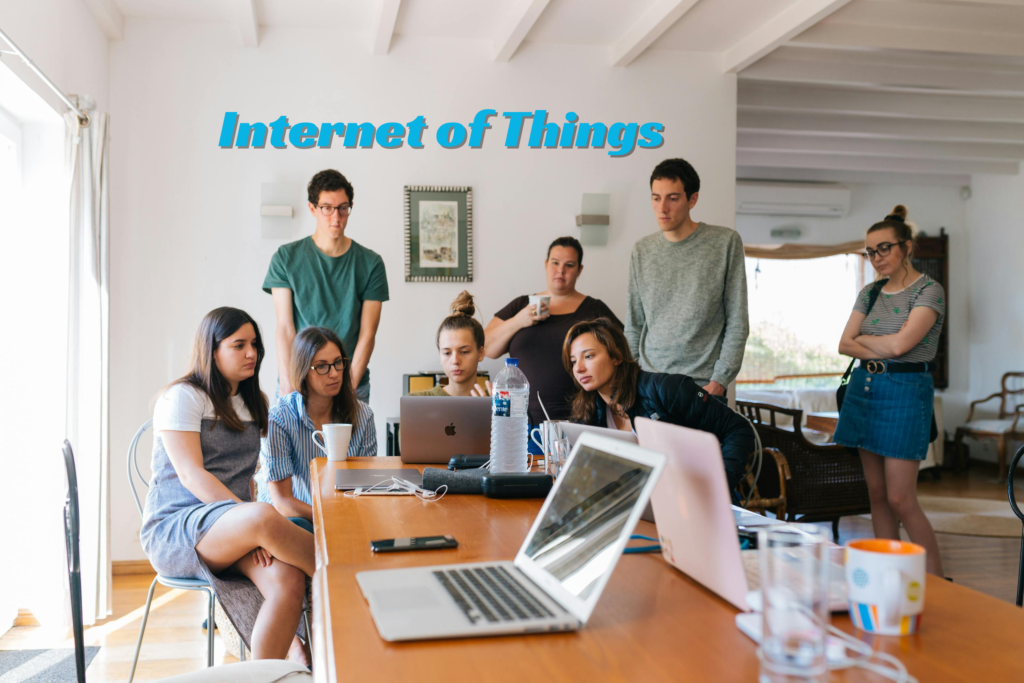Introduction: Welcome to the era of interconnected devices and smart technology, where the Internet of Things (IoT) is revolutionizing the way we live, work, and interact with the world around us. In this comprehensive guide, we delve into the intricacies of IoT, exploring its significance, applications, and future prospects. Whether you’re a seasoned tech enthusiast or someone curious about the latest innovations, join us on this journey to unlock the full potential of IoT.
Internet of Things: Connecting the World
In today’s digital age, the Internet of Things (IoT) stands as a testament to the transformative power of connectivity. At its core, IoT refers to the network of interconnected devices, sensors, and systems that communicate and exchange data seamlessly. From smart homes and wearable devices to industrial machinery and urban infrastructure, IoT encompasses a vast array of applications, each poised to redefine how we interact with technology. You may also like to read about Artificial Intelligence: Revolutionizing the Future.
The Evolution of IoT Technology
The journey of IoT traces back to the early 2000s when the concept first emerged as a revolutionary paradigm shift in the realm of technology. Since then, rapid advancements in wireless communication, sensor technology, and cloud computing have propelled IoT into the mainstream, enabling unprecedented levels of connectivity and automation. Today, IoT solutions encompass a diverse range of technologies, including RFID tags, embedded sensors, and edge computing, driving innovation across industries.
Applications of IoT Across Industries
IoT’s impact extends far beyond the realm of consumer gadgets, permeating various sectors with its transformative potential. In healthcare, IoT devices such as remote patient monitoring systems and smart medical implants are revolutionizing patient care, enhancing efficiency, and improving health outcomes. Similarly, in agriculture, IoT-enabled precision farming techniques are optimizing crop yields, conserving resources, and promoting sustainable practices.
Challenges and Opportunities
While the proliferation of IoT brings forth a myriad of benefits, it also presents unique challenges and considerations. Security concerns, interoperability issues, and data privacy risks are among the foremost challenges facing IoT adoption. However, with concerted efforts towards standardization, cybersecurity, and regulatory frameworks, these challenges can be mitigated, paving the way for a safer and more reliable IoT ecosystem.
The Future of IoT: Towards a Connected World
As we stand on the cusp of the Fourth Industrial Revolution, the potential of IoT to reshape our world is boundless. From smart cities and autonomous vehicles to personalized healthcare and intelligent manufacturing, the future holds limitless possibilities fueled by the proliferation of IoT technology. By harnessing the power of connectivity, collaboration, and innovation, we can unlock new horizons and usher in an era of unprecedented progress and prosperity.
Frequently Asked Questions (FAQs)
How does IoT technology work?
IoT technology relies on interconnected devices equipped with sensors and actuators, which communicate and exchange data over a network. These devices collect real-time information, analyze it, and initiate actions based on predefined parameters, enabling automation and intelligent decision-making.
What are the security implications of IoT?
Security is a paramount concern in IoT deployments due to the interconnected nature of devices and the vast amounts of sensitive data they generate. Common security threats include unauthorized access, data breaches, and device tampering. Implementing robust encryption, authentication mechanisms, and regular security updates are essential to mitigate these risks.
What are some examples of IoT applications in daily life?
IoT has permeated various aspects of daily life, from smart home devices like thermostats and security cameras to wearable fitness trackers and voice-activated assistants. Additionally, IoT technologies are increasingly integrated into transportation systems, healthcare facilities, and industrial operations, enhancing efficiency, convenience, and safety.
How does IoT impact privacy?
The proliferation of IoT devices raises concerns about data privacy and surveillance, as these devices continuously collect and analyze vast amounts of personal information. To address these concerns, stringent privacy regulations and guidelines are being developed to ensure transparency, consent, and data protection in IoT deployments.
What are the benefits of IoT in business and industry?
IoT offers numerous benefits for businesses and industries, including enhanced operational efficiency, cost savings, and improved decision-making. By leveraging real-time data insights and predictive analytics, organizations can optimize processes, streamline workflows, and gain a competitive edge in the market.
How can individuals and businesses secure their IoT devices?
Securing IoT devices requires a multi-faceted approach that encompasses both technical and procedural measures. This includes implementing strong authentication mechanisms, encrypting data transmission, regularly updating firmware, and restricting access to authorized users. Additionally, educating users about security best practices and raising awareness about potential threats are crucial steps in safeguarding IoT ecosystems.
Conclusion
In conclusion, the Internet of Things (IoT) represents a groundbreaking technological paradigm that is reshaping industries, revolutionizing daily life, and propelling us towards a more connected future. With its ability to interconnect devices, collect real-time data, and enable intelligent decision-making, IoT holds immense promise for enhancing efficiency, improving productivity, and fostering innovation across various domains.
However, as we embrace the opportunities presented by IoT, it is imperative to address the associated challenges, including security vulnerabilities, privacy concerns, and interoperability issues. By implementing robust security measures, enacting stringent privacy regulations, and fostering collaboration among stakeholders, we can ensure that the benefits of IoT are realized without compromising safety, privacy, or ethical considerations.
As we look ahead, the future of IoT is bright and full of possibilities. From smart cities and autonomous vehicles to personalized healthcare and sustainable agriculture, IoT holds the key to unlocking new frontiers of technological advancement and societal progress. By harnessing the power of connectivity, creativity, and collaboration, we can build a future where the potential of IoT is fully realized, ushering in an era of unprecedented innovation and prosperity for all.
Together, let us embrace the transformative potential of IoT and embark on a journey towards a more connected, intelligent, and sustainable world.

